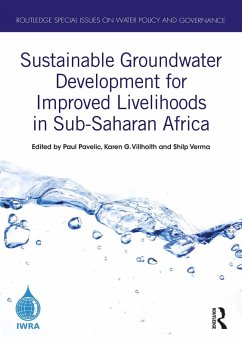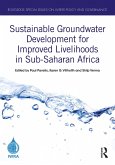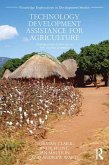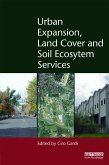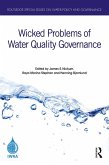Sustainable Groundwater Development for Improved Livelihoods in Sub-Saharan Africa (eBook, ePUB)
Redaktion: Pavelic, Paul; Verma, Shilp; Villholth, Karen G.
40,95 €
40,95 €
inkl. MwSt.
Sofort per Download lieferbar

20 °P sammeln
40,95 €
Als Download kaufen

40,95 €
inkl. MwSt.
Sofort per Download lieferbar

20 °P sammeln
Jetzt verschenken
Alle Infos zum eBook verschenken
40,95 €
inkl. MwSt.
Sofort per Download lieferbar
Alle Infos zum eBook verschenken

20 °P sammeln
Sustainable Groundwater Development for Improved Livelihoods in Sub-Saharan Africa (eBook, ePUB)
Redaktion: Pavelic, Paul; Verma, Shilp; Villholth, Karen G.
- Format: ePub
- Merkliste
- Auf die Merkliste
- Bewerten Bewerten
- Teilen
- Produkt teilen
- Produkterinnerung
- Produkterinnerung

Bitte loggen Sie sich zunächst in Ihr Kundenkonto ein oder registrieren Sie sich bei
bücher.de, um das eBook-Abo tolino select nutzen zu können.
Hier können Sie sich einloggen
Hier können Sie sich einloggen
Sie sind bereits eingeloggt. Klicken Sie auf 2. tolino select Abo, um fortzufahren.

Bitte loggen Sie sich zunächst in Ihr Kundenkonto ein oder registrieren Sie sich bei bücher.de, um das eBook-Abo tolino select nutzen zu können.
This book provides a comprehensive analysis of the benefits and challenges of intensifying groundwater irrigation in Sub-Saharan Africa (SSA) for improving smallholder agrarian livelihoods. It was originally published as a Special Issue of Water International journal.
- Geräte: eReader
- mit Kopierschutz
- eBook Hilfe
Andere Kunden interessierten sich auch für
![Sustainable Groundwater Development for Improved Livelihoods in Sub-Saharan Africa (eBook, PDF) Sustainable Groundwater Development for Improved Livelihoods in Sub-Saharan Africa (eBook, PDF)]() Sustainable Groundwater Development for Improved Livelihoods in Sub-Saharan Africa (eBook, PDF)40,95 €
Sustainable Groundwater Development for Improved Livelihoods in Sub-Saharan Africa (eBook, PDF)40,95 €![Technology Development Assistance for Agriculture (eBook, ePUB) Technology Development Assistance for Agriculture (eBook, ePUB)]() Norman ClarkTechnology Development Assistance for Agriculture (eBook, ePUB)46,95 €
Norman ClarkTechnology Development Assistance for Agriculture (eBook, ePUB)46,95 €![Water Tech (eBook, ePUB) Water Tech (eBook, ePUB)]() William SarniWater Tech (eBook, ePUB)34,95 €
William SarniWater Tech (eBook, ePUB)34,95 €![Groundwater (eBook, ePUB) Groundwater (eBook, ePUB)]() Groundwater (eBook, ePUB)41,95 €
Groundwater (eBook, ePUB)41,95 €![Urban Expansion, Land Cover and Soil Ecosystem Services (eBook, ePUB) Urban Expansion, Land Cover and Soil Ecosystem Services (eBook, ePUB)]() Urban Expansion, Land Cover and Soil Ecosystem Services (eBook, ePUB)46,95 €
Urban Expansion, Land Cover and Soil Ecosystem Services (eBook, ePUB)46,95 €![Oceans and Society (eBook, ePUB) Oceans and Society (eBook, ePUB)]() Oceans and Society (eBook, ePUB)35,95 €
Oceans and Society (eBook, ePUB)35,95 €![Wicked Problems of Water Quality Governance (eBook, ePUB) Wicked Problems of Water Quality Governance (eBook, ePUB)]() Wicked Problems of Water Quality Governance (eBook, ePUB)41,95 €
Wicked Problems of Water Quality Governance (eBook, ePUB)41,95 €-
-
-
This book provides a comprehensive analysis of the benefits and challenges of intensifying groundwater irrigation in Sub-Saharan Africa (SSA) for improving smallholder agrarian livelihoods. It was originally published as a Special Issue of Water International journal.
Hinweis: Dieser Artikel kann nur an eine deutsche Lieferadresse ausgeliefert werden.
Dieser Download kann aus rechtlichen Gründen nur mit Rechnungsadresse in A, B, BG, CY, CZ, D, DK, EW, E, FIN, F, GR, HR, H, IRL, I, LT, L, LR, M, NL, PL, P, R, S, SLO, SK ausgeliefert werden.
Hinweis: Dieser Artikel kann nur an eine deutsche Lieferadresse ausgeliefert werden.
Produktdetails
- Produktdetails
- Verlag: Taylor & Francis eBooks
- Seitenzahl: 236
- Erscheinungstermin: 8. Mai 2023
- Englisch
- ISBN-13: 9781000866469
- Artikelnr.: 67650132
- Verlag: Taylor & Francis eBooks
- Seitenzahl: 236
- Erscheinungstermin: 8. Mai 2023
- Englisch
- ISBN-13: 9781000866469
- Artikelnr.: 67650132
- Herstellerkennzeichnung Die Herstellerinformationen sind derzeit nicht verfügbar.
Paul Pavelic is Senior Researcher at the International Water Management Institute (IWMI) and is also an Associate Professor with Flinders University, Adelaide, Australia by affiliation. Paul has led or participated in many interdisciplinary studies in Africa and Asia. His areas of expertise include groundwater assessment and management, conjunctive water use, urban hydrology and water reuse, agricultural water management and managed aquifer recharge. Karen G. Villholth is Director of Water Cycle Innovation (Pty) Ltd, South Africa. She has more than 30 years of experience in research for development. She worked for the International Water Management Institute (IWMI) for 13 years in Asia and Africa and chaired the Groundwater Solutions Initiative for Policy and Practice (GRIPP) for more than 5 years. Her areas of expertise include transboundary waters, groundwater and food security, groundwater resources assessment and integrated modelling, climate change and groundwater, groundwater-dependent ecosystems, Groundwater-Based Natural Infrastructure (GBNI), groundwater protection, 'Whole of the Water Cycle' management, and governance. Shilp Verma is Senior Researcher, Water-Energy-Food Policies with the International Water Management Institute (IWMI), India. An alumnus of the University of Delhi, the Institute of Rural Management, Anand (IRMA) and UNESCO-IHE, Institute for Water Education, Delft, Netherlands, Shilp has more than 20 years of experience in the water, energy, agriculture and rural livelihoods domain. In his current role, he leads the IWMI-Tata Water Policy Program in India besides providing leadership to IWMI's work on sustainable resource management and economic growth in Asia and Africa. His research covers a range of themes relevant for smallholder farming and water security in South Asia and Sub-Saharan Africa.
Introduction: Identifying the barriers and pathways forward for expanding
the use of groundwater for irrigation in Sub-Saharan Africa 1. Groundwater
irrigation for smallholders in Sub-Saharan Africa - a synthesis of current
knowledge to guide sustainable outcomes 2. Smallholder groundwater
irrigation in Sub-Saharan Africa: country-level estimates of development
potential 3. Understanding smallholder irrigation in Sub-Saharan Africa:
results of a sample survey from nine countries 4. Do policy and
institutional factors explain the low levels of smallholder groundwater use
in Sub-Saharan Africa? 5. Small pumps and poor farmers in Sub-Saharan
Africa: an assessment of current extent of use and poverty outreach 6.
Small pumps and the poor: a field survey in the Upper East Region of Ghana
7. Improving the supply chain of motor pumps to accelerate mechanized
small-scale private irrigation in Zambia 8. Gender aspects of smallholder
private groundwater irrigation in Ghana and Zambia 9. Integrated assessment
of hydrogeology and water quality for groundwater-based irrigation
development in the Raya Valley, northern Ethiopia 10. Cost-benefit analysis
and ideas for cost sharing of groundwater irrigation: evidence from
north-eastern Ethiopia 11. Predicting groundwater recharge in Ghana by
estimating evapotranspiration 12. Groundwater potential for dry-season
irrigation in north-eastern Ghana 13. Constraints and opportunities for
groundwater irrigation arising from hydrologic shifts in the Iullemmeden
Basin, south-western Niger
the use of groundwater for irrigation in Sub-Saharan Africa 1. Groundwater
irrigation for smallholders in Sub-Saharan Africa - a synthesis of current
knowledge to guide sustainable outcomes 2. Smallholder groundwater
irrigation in Sub-Saharan Africa: country-level estimates of development
potential 3. Understanding smallholder irrigation in Sub-Saharan Africa:
results of a sample survey from nine countries 4. Do policy and
institutional factors explain the low levels of smallholder groundwater use
in Sub-Saharan Africa? 5. Small pumps and poor farmers in Sub-Saharan
Africa: an assessment of current extent of use and poverty outreach 6.
Small pumps and the poor: a field survey in the Upper East Region of Ghana
7. Improving the supply chain of motor pumps to accelerate mechanized
small-scale private irrigation in Zambia 8. Gender aspects of smallholder
private groundwater irrigation in Ghana and Zambia 9. Integrated assessment
of hydrogeology and water quality for groundwater-based irrigation
development in the Raya Valley, northern Ethiopia 10. Cost-benefit analysis
and ideas for cost sharing of groundwater irrigation: evidence from
north-eastern Ethiopia 11. Predicting groundwater recharge in Ghana by
estimating evapotranspiration 12. Groundwater potential for dry-season
irrigation in north-eastern Ghana 13. Constraints and opportunities for
groundwater irrigation arising from hydrologic shifts in the Iullemmeden
Basin, south-western Niger
Introduction: Identifying the barriers and pathways forward for expanding
the use of groundwater for irrigation in Sub-Saharan Africa 1. Groundwater
irrigation for smallholders in Sub-Saharan Africa - a synthesis of current
knowledge to guide sustainable outcomes 2. Smallholder groundwater
irrigation in Sub-Saharan Africa: country-level estimates of development
potential 3. Understanding smallholder irrigation in Sub-Saharan Africa:
results of a sample survey from nine countries 4. Do policy and
institutional factors explain the low levels of smallholder groundwater use
in Sub-Saharan Africa? 5. Small pumps and poor farmers in Sub-Saharan
Africa: an assessment of current extent of use and poverty outreach 6.
Small pumps and the poor: a field survey in the Upper East Region of Ghana
7. Improving the supply chain of motor pumps to accelerate mechanized
small-scale private irrigation in Zambia 8. Gender aspects of smallholder
private groundwater irrigation in Ghana and Zambia 9. Integrated assessment
of hydrogeology and water quality for groundwater-based irrigation
development in the Raya Valley, northern Ethiopia 10. Cost-benefit analysis
and ideas for cost sharing of groundwater irrigation: evidence from
north-eastern Ethiopia 11. Predicting groundwater recharge in Ghana by
estimating evapotranspiration 12. Groundwater potential for dry-season
irrigation in north-eastern Ghana 13. Constraints and opportunities for
groundwater irrigation arising from hydrologic shifts in the Iullemmeden
Basin, south-western Niger
the use of groundwater for irrigation in Sub-Saharan Africa 1. Groundwater
irrigation for smallholders in Sub-Saharan Africa - a synthesis of current
knowledge to guide sustainable outcomes 2. Smallholder groundwater
irrigation in Sub-Saharan Africa: country-level estimates of development
potential 3. Understanding smallholder irrigation in Sub-Saharan Africa:
results of a sample survey from nine countries 4. Do policy and
institutional factors explain the low levels of smallholder groundwater use
in Sub-Saharan Africa? 5. Small pumps and poor farmers in Sub-Saharan
Africa: an assessment of current extent of use and poverty outreach 6.
Small pumps and the poor: a field survey in the Upper East Region of Ghana
7. Improving the supply chain of motor pumps to accelerate mechanized
small-scale private irrigation in Zambia 8. Gender aspects of smallholder
private groundwater irrigation in Ghana and Zambia 9. Integrated assessment
of hydrogeology and water quality for groundwater-based irrigation
development in the Raya Valley, northern Ethiopia 10. Cost-benefit analysis
and ideas for cost sharing of groundwater irrigation: evidence from
north-eastern Ethiopia 11. Predicting groundwater recharge in Ghana by
estimating evapotranspiration 12. Groundwater potential for dry-season
irrigation in north-eastern Ghana 13. Constraints and opportunities for
groundwater irrigation arising from hydrologic shifts in the Iullemmeden
Basin, south-western Niger
